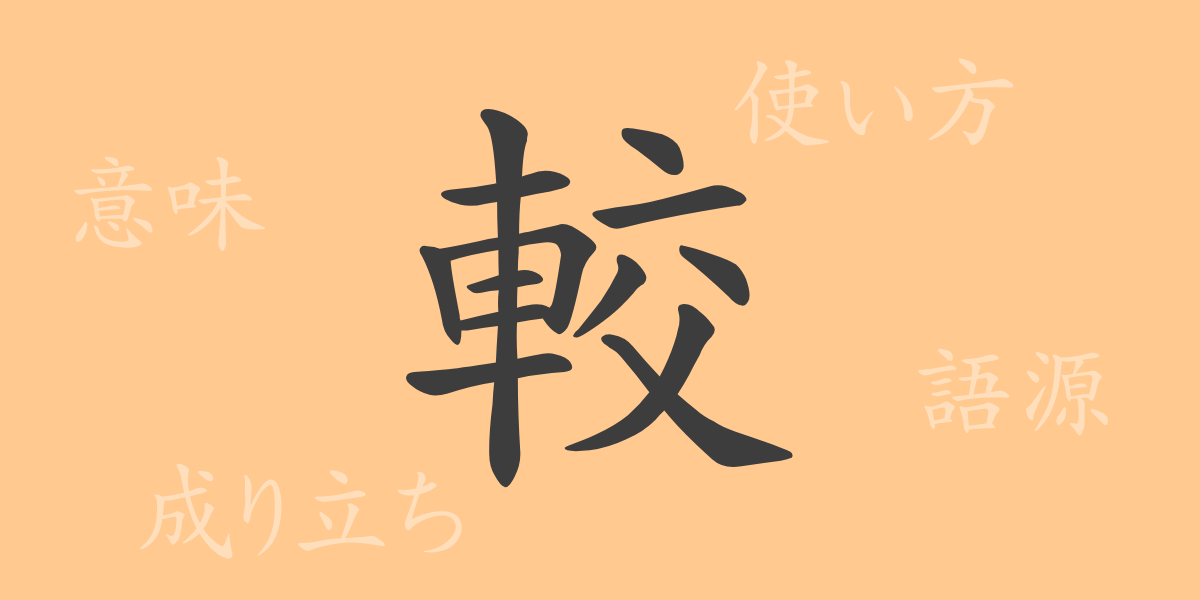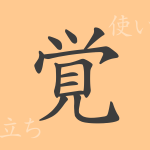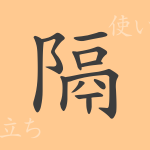Japan’s character culture is deep and enables rich expressions. Among them, the commonly used kanji play a vital role in daily life, conveying the deep meanings of words. The kanji “較” (Kou) is essential for indicating comparisons and differences in Japanese, and it is used in many idioms and phrases. This article provides a detailed explanation of the origins, meanings, usage, and readings of “較” (Kou), as well as expressions that utilize this kanji.
The Origins of 較 (Kou)
The kanji “較” (Kou) originated in ancient China and is composed of the part “車” (Sya), which represents a vehicle, and “交” (Kou), which means to compare. The concept of comparison arose from comparing vehicles and has since been used to compare various things. “較” (Kou) carries the meaning of contrasting and clarifying differences, and its usage has been passed down through the ages, remaining unchanged in the Japanese language.
The Meaning and Usage of 較 (Kou)
The kanji “較” (Kou) has meanings such as “to compare” and “to contrast.” In Japanese, it is used in words like “比較” (Hikaku, comparison) and in forms such as “対較” (Taikou) and “較べる” (Kura-beru). By using “較” (Kou), it is possible to clearly indicate the differences between two or more items, making it an indispensable kanji for logical discussions and explanations.
Readings, Stroke Count, and Radical of 較 (Kou)
The readings, stroke count, and radical of the kanji “較” (Kou) are essential basic information for learners of the Japanese language.
- Readings: Onyomi “こう” (Kou), Kunyomi “くら.べる” (Kura-beru)
- Stroke Count: 13 strokes
- Radical: 車部 (Kurumahenn, vehicle radical)
Idioms, Phrases, and Proverbs Using 較 (Kou) and Their Meanings
There are many idioms, phrases, and proverbs that include the kanji “較” (Kou) in the Japanese language. For example, “比較検討” (Hikakukenntou, comparative consideration) means to compare and examine multiple matters, while “格差を比較する” (Kakusa-wo-hikaku-suru, to compare disparities) means to evaluate the differences between various things. Additionally, the phrase “較べ物にならない” (Kura-be-mono-ninaranai) is an idiom that means the difference is too great to compare.
Summary of 較 (Kou)
The kanji “較” (Kou), as its shape and meaning suggest, is indispensable for comparison and evaluation. This kanji, deeply involved in communication and expression in Japanese, is rooted in our daily lives through many idioms and phrases. A correct understanding of “較” (Kou) is necessary for making clear comparisons, and it is our hope that this article will help deepen that understanding.

























